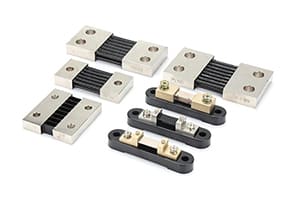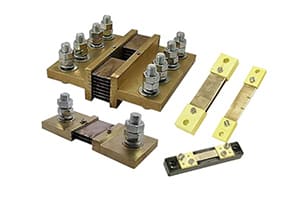
In my 30 years of manufacturing DC shunts, I've witnessed countless system failures due to poor current measurement solutions. These failures often result in expensive repairs and dangerous situations.
DC shunt resistors are critical components in electrical systems that provide accurate current measurement through a precise voltage drop. They serve as the foundation for system protection, monitoring, and optimization in various applications.
As someone who has helped thousands of customers solve their current measurement challenges, I understand the critical role of DC shunt resistors. Let me share insights from my experience to help you grasp why these components are essential for modern electrical systems and how they can prevent costly mistakes while ensuring optimal performance.
Key Benefits of DC Shunts?
Every day, I talk with engineers who are surprised by the extensive advantages that quality DC shunts bring to their systems. Their impact goes far beyond simple current measurement.
DC shunts offer multiple benefits including high accuracy, exceptional stability, minimal maintenance requirements, and outstanding cost-effectiveness compared to other current measurement solutions.

From my years of working with various industries, I've identified several key advantages that make DC shunts indispensable. The first is their remarkable stability - I've seen our shunts maintain their accuracy for decades with minimal drift. The second is their immunity to electromagnetic interference, which is crucial in noisy industrial environments. The third is their simple yet robust design that virtually eliminates maintenance needs.
I recently worked with a major electric vehicle manufacturer who switched from Hall effect sensors to our DC shunts. They were amazed by the improvement in measurement stability and the reduction in maintenance costs. Their battery management system became more reliable, and they could better optimize their charging cycles, leading to improved battery life and performance.
DC Shunts in Power Systems?
Throughout my career, I've observed how power systems have evolved, but the fundamental need for accurate current measurement remains constant.
DC shunts play a vital role in power systems by providing precise current monitoring, enabling system protection, and ensuring efficient power distribution. Their reliability makes them essential for critical power applications.

In power systems, DC shunts serve multiple critical functions. Based on my experience with utility-scale installations, I can tell you that proper shunt selection and implementation are crucial for system reliability. We focus on three main aspects: current capacity, voltage drop, and temperature stability.
Let me share a recent success story. A solar power plant was experiencing inconsistent power output readings, affecting their billing accuracy. After installing our precision DC shunts with temperature compensation, they achieved measurement accuracy better than 0.1%. This improvement helped them optimize their power generation and provide accurate billing to their customers.
How DC Shunts Ensure Accuracy?
Many customers ask me about measurement accuracy, and it's a critical aspect that deserves detailed explanation.
DC shunts achieve high accuracy through precise resistance values, minimal temperature drift, and optimized design for uniform current distribution. Their simple yet sophisticated construction ensures reliable measurements under various conditions.

The accuracy of DC shunts depends on several key factors that we carefully control during manufacturing. First, we use specialized alloys with extremely low temperature coefficients. Second, our design ensures uniform current distribution to prevent hot spots. Third, we implement precise calibration procedures for each shunt.
I remember working with a research laboratory that required ultra-high precision measurements. We developed a custom shunt with 0.01% accuracy by implementing additional temperature compensation and using advanced calibration techniques. This level of precision enabled their groundbreaking research in power electronics.
Conclusion
DC shunt resistors are fundamental to modern electrical systems, providing the accuracy, reliability, and stability needed for precise current measurement. Their simple yet effective design, combined with proper implementation, makes them an invaluable tool for system protection and optimization. As power systems continue to evolve, the role of DC shunts becomes increasingly important in ensuring safe and efficient operation.
















